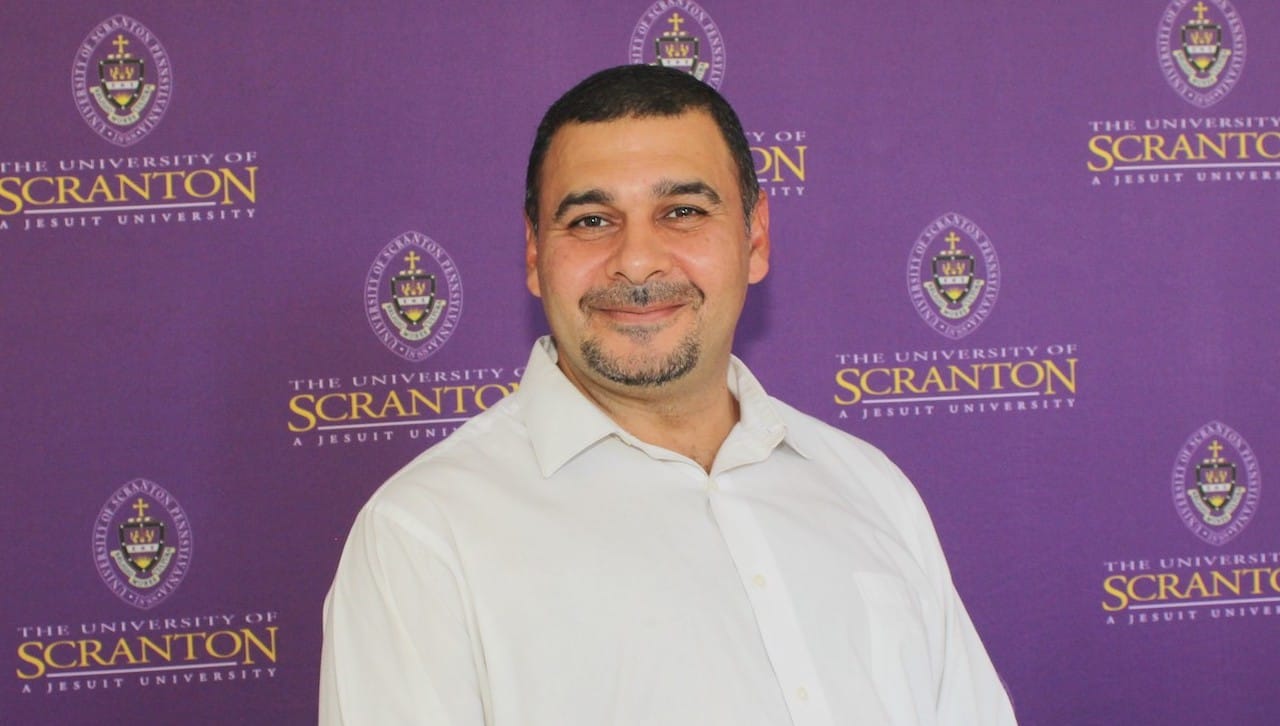Professor Receives NSF Grant

Ahmed Gomaa, Ph.D., entrepreneurship director and associate professor of operations and information management at The University of Scranton, received a $50,000 National Science Foundation (NSF) grant for a project that seeks to improve shared access to and security of individual health information.
The project seeks to identify and find solutions to problems concerning information capturing, managing and sharing of individual health records, while meeting compliance requirements of the Health Insurance Portability and Accountability Act (HIPAA) for the U.S. and the General Data Protection Requirements (GDPR), required by the European Union.
Through the project, Dr. Gomaa, principal investigator and industry mentor, is working with colleagues Matt Hope, M.D. candidate, and Evan Porter, M.D., from Geisinger Commonwealth School of Medicine who co-founded Summa, a new healthcare technology company. They have already interviewed more than 100 stakeholders in the pharmaceutical and healthcare industries. Their survey of stakeholders confirmed the need to address the information “silos” challenge among the different parties, such as specialized and primary health care providers, hospitals and health information collected by pharmaceutical companies through clinical trials, as well as personal health data collected by various wellness wearable devices, and applications. Their research also revealed stockholders concerns about shared data governance and information bias from the various sources, in addition to health information security requirements.
“An objective of the NSF is to help researchers transform their inventions into impact. The NSF wants to make sure that the scientists are speaking with those in the industry to ensure that the technologies they are developing meet actual industry needs,” said Dr. Gomaa.
Their research will focus on developing an information system that meets the validated industry needs, such as capturing, managing and sharing individual health information, while still maintaining HIPAA and GDPR requirements.
Eventually, Dr. Gomaa envisions being able to better forecast individual health risks, while ensuring transparent data governance using blockchain, Artificial Intelligence and predictive analytics.
Dr. Gomaa’s research focuses on developing practical applications that harness data to solve existing problems or improve business functions that have the potential to be commercialized in three to seven years. He has published research articles in the areas of entrepreneurship, health informatics, business analytics, blockchain, sentiment analysis and security. His work is cited in patents granted to companies including IBM, British Telecom, Deloitte, Intel, Microsoft and SAP, to name a few. Prior to becoming a professor, Dr. Gomaa founded iMediaStreams, a technology company that uses sentiment analysis for online marketing.
Dr. Gomaa earned his bachelor’s and master’s degrees from the University of Alexandria in Egypt, and his MBA and doctorate from Rutgers University.






